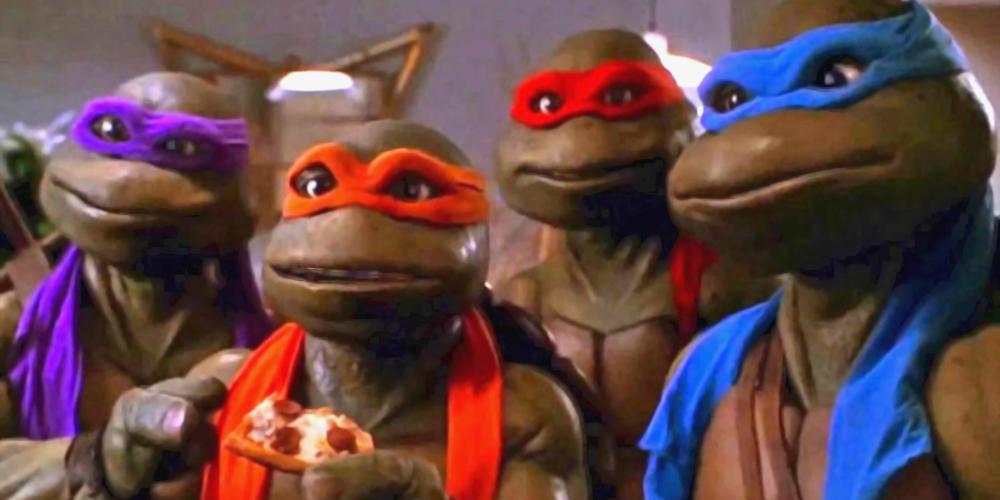Like many people my age, I was obsessed with the Teenage Mutant Ninja Turtles as a kid. I had all the toys I could get my hands on, and I watched my VHS copy of the cartoon until it wore out.
Thanks to the inexplicably popular cartoon and its extremely catchy theme songs—one of the catchiest of all time—the Turtles were already household names by their live-action movie's debut in 1990.
Even though the franchise was already one of the biggest names in children's entertainment, the original Teenage Mutant Ninja Turtles movie was seen as a significant risk for movie studios...
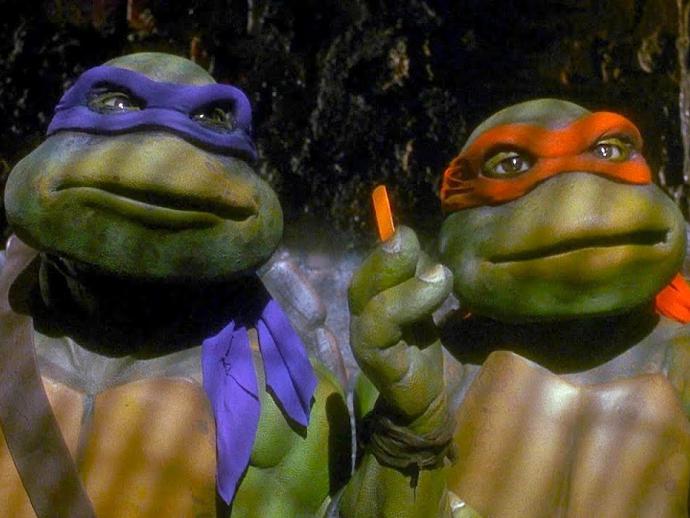
...so much so that the movie failed to secure a distribution company until it was well into the production process. In fact, until New Line Cinema stepped in, it wasn't certain the film would see the light of day.
And despite all odds, the original Teenage Mutant Ninja Turtles movie released in 1990 and went on to become one of the top grossing films of the year—and also the highest-earning independent film until The Blair Witch Project almost a decade later.
Teenage Mutant Ninja Turtles is over three decades old by now, yet stands out as one example of a comic book movie that aged far better than others of its day. With modern eyes, it feels more grounded and relevant than the stylized Batman or effects-reliant The Rocketeer.
The TMNT Movie, Inspired by the Comics
Teenage Mutant Ninja Turtles didn't start out as a TV phenomenon. Originally, it was a comic book made by Kevin Eastman and Peter Laird that heavily satirized the Daredevil comics of the time.
The TMNT comics were intended to be a one-shot (with the Shredder being killed in the first issue), but its sudden popularity spawned a toy line and the animated series that became popular the world over.
So even though the TV show's popularity is what inspired the creation of the live-action movie, the movie took more inspiration from the original comic books than the TV series.
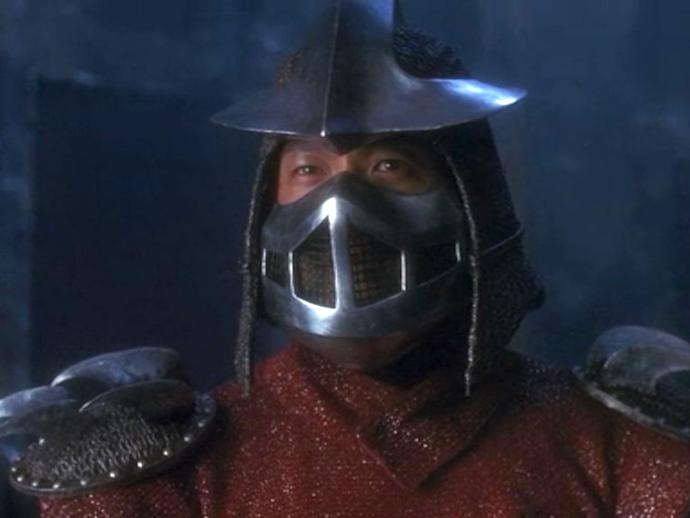
We can see this in how much darker the TMNT movie dared to be, in ways the animated series never could be. Early on, Splinter is held hostage and presumably killed, and the Turtles openly mourn the loss of their master and father figure while recovering at a farmhouse.
The influence of the cartoon can be seen at points, of course, particularly in the Turtles' obsession with pizza and Michelangelo's goofier personality. But for the most part, the movie remains faithful in tone to the original comic material.
Considering how the censors wouldn't allow the Turtles to deploy their iconic weapons against people in the cartoon, producers made the right choice following in the footsteps of the comics instead.
On-Point Action Scenes in the TMNT Movie
In a movie about a group of anthropomorphic turtles fighting evil with martial arts, you should expect to see impressive fight sequences throughout its runtime—and there was plenty of that.
The Teenage Mutant Ninja Turtles movie brought in legendary production company Golden Harvest, who helped produce some of the biggest hits in Hong Kong cinema, including Bruce Lee's Enter the Dragon and nearly every film featuring Jackie Chan.
A company so well-versed in martial arts filmmaking meant access to top-quality stuntmen, who would need to film the fight scenes while weighed down by over 50 pounds of foam and latex costumes.
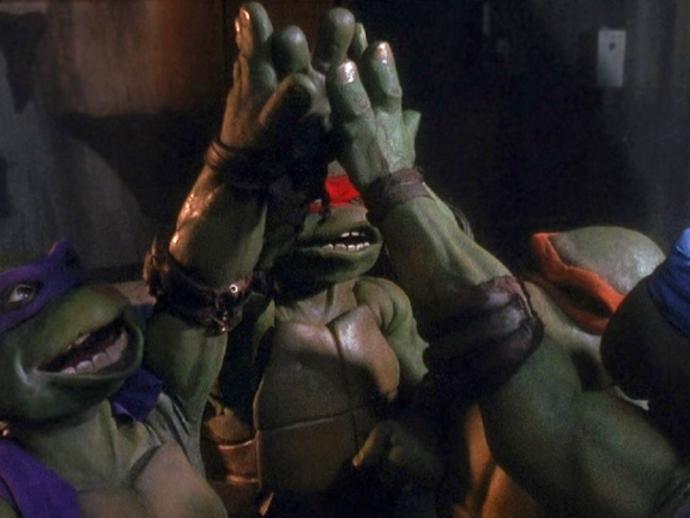
These cumbersome costumes—along with the film's low budget— resulted in more than one injury on set, but the results on the screen remain stellar to this day.
The rooftop fight between Raphael and the Foot Clan, which roams between sets and locations as it develops, remains fun to watch today.
And that final confrontation between the Turtles and Shredder? Tense and legitimately perilous for the young kids who were the target audience for the movie.
Advanced Turtle Costumes, Not CGI
Jim Henson's Creature Shop has been responsible for some of the most iconic puppeteering in history, so it's no surprise that they managed to craft such believable Turtles for the movie.
What is surprising is how advanced the costumes were for their time. They had multiple mechanical parts in the face, allowing the heroes to emote enough to bring much-needed heart to the film.
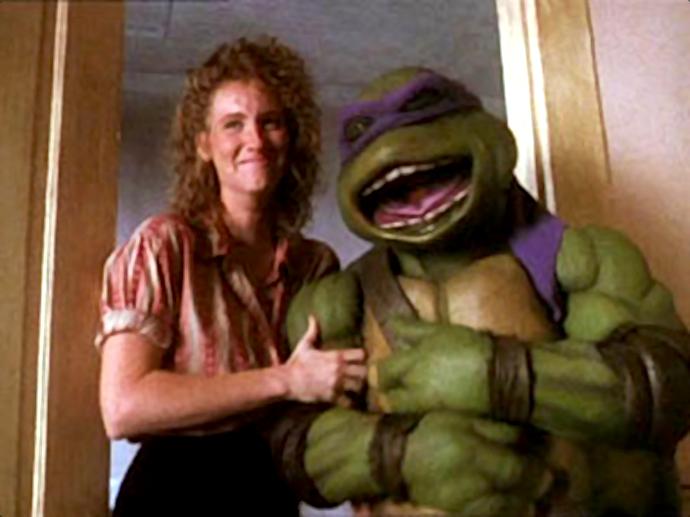
This did cause some difficulties, however. The North Carolina sound stage (where the movie was filmed) was near an airport, and radio interference from overhead planes disrupted the mechanical parts. Eyes would get stuck shut. Mouths would open and close.
Delays caused by mechanical failures, as well as the encumbering nature of being in 50-pound foam builds for hours at a time, were frustrating for both cast and crew. That snowballed and caused more than a few conflicts over the course of filming.
But they worked through it, and the results speak for themselves. If you need elaborate costumes for believable six-foot-tall fighting turtles, then Jim Henson is the first name that should come to mind.
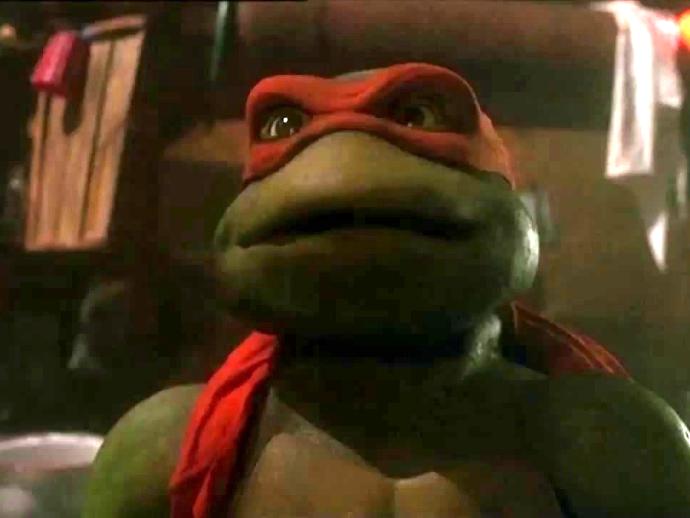
The Turtles all resemble each other, but their individual suits have their own quirks and charms, bringing each character to life in a unique way that only practical effects can achieve.
All combined, the original Teenage Mutant Ninja Turtles movie is highly rewatchable even to this day, moreso than most other movies that came out in 1990. The fact that we can say this about a movie starring humanoid Turtles? That alone says everything, really.
